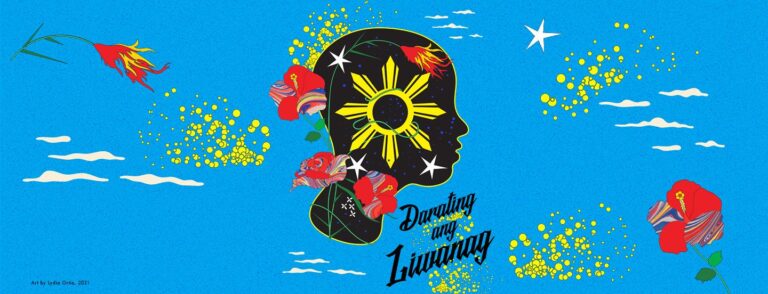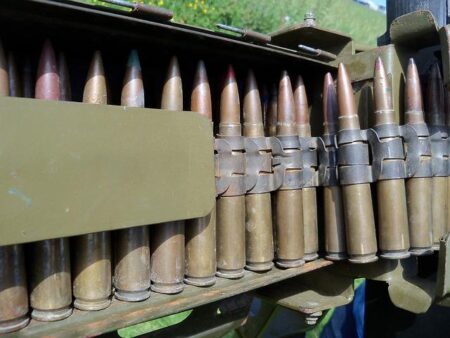San Francisco is set to honor Filipino American heritage with a special Virtual Celebration on October 21, marking Filipino American History Month. The event aims to highlight the rich cultural contributions and history of the Filipino American community through a series of engaging online activities. Hosted by local organizations and community leaders, the celebration will provide an opportunity for residents and supporters to connect, learn, and commemorate this important month amid the ongoing challenges of the pandemic.
San Francisco Announces Filipino American History Month Virtual Celebration
In recognition of the rich cultural heritage and significant contributions of Filipino Americans, San FranciscoŌĆÖs local government is organizing a comprehensive virtual celebration on October 21. This event promises to offer an engaging lineup of activities designed to educate, entertain, and unite the community across the Bay Area and beyond. Attendees can look forward to a vibrant program featuring keynote speakers, lively cultural performances, and illuminating panel discussions with Filipino American leaders and historians.
Highlights of the virtual event include:
- Interactive Workshops on Filipino arts and crafts
- Live musical performances showcasing traditional and contemporary Filipino styles
- Community storytelling sessions sharing personal heritage narratives
- Q&A sessions with prominent Filipino American figures
This initiative not only serves to preserve and promote Filipino American history but also encourages cross-cultural dialogue, fostering a stronger sense of unity and pride among participants.
Highlights of the Virtual Events Showcasing Filipino American Culture and Heritage
This yearŌĆÖs virtual celebration promises an immersive experience into Filipino American culture and heritage, bringing together community members, historians, and artists from across the country. Attendees can expect a rich tapestry of live performances, gallery exhibitions, and panel discussions that highlight the dynamic contributions of Filipino Americans. Among the featured events are traditional kundiman music performances, interactive culinary sessions showcasing Filipino cuisine, and storytelling segments that illuminate the diaspora’s diverse narratives.
The schedule is designed to engage all ages through a variety of formats, including workshops, film screenings, and cultural demonstrations. Highlights include:
- ŌĆ£Legacy of the BayŌĆØ: A virtual exhibit exploring Filipino American history in San Francisco.
- Pinoy Youth Voices Panel: A dialogue platform for young Filipino Americans to share their experiences and visions for the future.
- Traditional Folk Arts Workshop: Learn weaving and folk dance techniques virtually from expert practitioners.
Community Leaders Emphasize Importance of Inclusive Historical Recognition
Voicing a unified call for recognition, several community leaders from the Filipino American diaspora highlighted the crucial need for a more inclusive approach to historical narratives. They stressed that acknowledging the diverse stories and contributions of Filipino Americans is essential not only for fostering cultural pride but also for educating the broader public on the rich tapestry of American history. These advocates pointed out that inclusive historical recognition combats erasure and creates a more equitable society where minority experiences are valued and preserved.
During the virtual celebration, leaders detailed strategies aimed at integrating Filipino American history into school curriculums and public commemorations year-round. Their proposals emphasize:
- Collaborative educational programs engaging schools and community organizations
- Archival projects to collect and preserve oral histories and artifacts
- Public policy advocacy to support official Filipino American heritage recognitions
| Focus Area | Key Action | Expected Impact |
|---|---|---|
| Education | Curriculum integration of Filipino American history | Enhanced cultural awareness in youth |
| Preservation | Oral history archives project | Protection of community heritage |
| Advocacy | Lobbying for heritage month recognition | Increased national visibility |
How to Participate and Support the Filipino American History Month Celebration
Engaging in the month-long celebration is easier than ever thanks to the virtual format curated by San Francisco organizers. Participants can join live-streamed panel discussions, interactive workshops, and cultural performances directly from their homes. Simply register on the official event website to receive links and schedules. Supporters are encouraged to share event highlights on social media using the hashtag #FilAmHistorySF to help amplify Filipino American stories and achievements within the broader community.
For those looking to deepen their involvement, local organizations have curated a list of meaningful ways to contribute:
- Volunteer remotely as event moderators or social media supporters.
- Donate to Filipino American educational and cultural programs highlighted during the celebration.
- Attend virtual exhibits showcasing Filipino American art and history, promoting awareness and cultural pride.
| Ways to Participate | Details |
|---|---|
| Attend Virtual Panels | Live expert discussions on heritage and contemporary issues |
| Social Media Campaign | Use #FilAmHistorySF to share stories and event coverage |
| Volunteer | Assist with online event management and outreach |
| Support Local Causes | Contribute to Filipino American nonprofits featured during the month |
In Summary
As San Francisco prepares to host the Filipino American History Month Virtual Celebration on October 21, the event promises to be a meaningful tribute to the rich heritage and contributions of the Filipino American community. By bringing together participants from across the nation, the celebration underscores the cityŌĆÖs commitment to honoring diversity and fostering cultural awareness. Stay tuned for a day of engaging programs, inspiring stories, and vibrant performances that highlight the enduring legacy of Filipino Americans in the United States.




